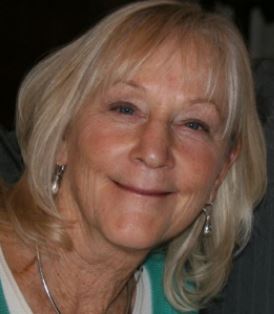Workplace Culture
Health Literacy Empowers Employees to Make Better Decisions
By Andie Burjek
Feb. 7, 2017

When in doubt, ask questions.
That’s what I’ve rediscovered after moving back with my parents after graduating college. The whole set-up allowed me to take a half-hour break from filling out job applications to make time for “Jeopardy!” in the mid-afternoon.
What makes “Jeopardy!” so valuable is that unlike so many other game shows out there, it reveres knowledge and encourages people to ask questions. It’s all about the brain. The contestants aren’t always the most interesting, and sometimes watching them small-talk with Alex Trebek is more uncomfortable than overhearing an awkward first date. This is irrelevant though. What makes “Jeopardy!” lovely isn’t entertaining anecdotes or big personalities. It’s facts, a thirst for knowledge, and contestants that can be anything from stay-at-home parents to college professors. It’s a half hour testament to collecting and questioning information.
Being knowledge-thirsty extends to the workplace, especially in areas like health education. How many people have actually said, “I’ll take health care for 800, Alex!” and asked the question, “What do I truly need to know about my health and the health care system?” The health care landscape is complicated, and something that both employers and employees may have trouble understanding.
“When people have a need to access the health care system, there’s also a need to understand that as a patient, you’re probably going to have a better overall outcome if you are informed about your own situation and understand the options available for your care,” said Debbie Youngblood, wellness coordinator at Hilliard City Schools in Ohio. She spoke with me about the recent effort in her school system to offer a health literacy program for employees.
The school district in which she works employs about 1,500 people, and it uses an online health literacy program called Quizzify to educate employees. Every month, the interested teachers, administrators, bus drivers, maintenance workers and anyone else who works for the school district can take a new quiz, which asks about a range of topics like health care costs, access to care at hospitals and nutrition.

As a wellness coordinator, Youngblood was enthusiastic to inform and educate employees about bigger issues that relate to accessing health care and making good health decisions. This helps employees not only improve their own individual well-being but also use new knowledge to make the best decisions for themselves and their families, depending on their circumstances. “From my health and fitness background, I’ve always felt that there was a need to have more [information] available to people as they go through their stages of life,” she said. “It always surprises me that we expect people to know how to achieve overall well-being. We’ve given them very little opportunity to know, understand and practice the things that might be beneficial.”
She also believes it’s valuable to educate adults on health-related topics because it drives conversation. She sees employees discussing topics and questioning the information gained through their health literacy program. “I think it’s great to have the curiosity to dig deeper,” she said.
The employees taking these quizzes can take them two times. The first time, they test their knowledge on health-related topics, see what they got wrong and access links to webpages that will provide them more information before they take the quiz the second time. This gives them the opportunity to seek out the information about which they’re the most interested or uninformed. The information itself has been thoroughly vetted, so as a wellness coordinator, Youngblood can be sure employees are getting solid information.
“Curiosity is something we can afford,” she said. Working for a self-insured employer, it’s important to consider the ways in which you can potentially save money. And in theory, if people are better informed, they could make better decisions and utilize the health care system more efficiently.
She gave an example from her own personal experience. A doctor recommended a CAT scan, but because of the knowledge she picked up, she understood what kinds of questions to ask and what she needed to know about her options. She learned how much radiation a CAT scan used versus a normal X-ray, and talked to the doctor about alternative options.
Knowledge has great power to impact people’s health decisions, both when they’re dealing with a simple medical procedure or when their health is in actual jeopardy.
Andie Burjek is a Workforce associate editor. Comment below, or email at aburjek@humancapitalmedia.com. Follow Workforce on Twitter at @workforcenews.
Schedule, engage, and pay your staff in one system with Workforce.com.
